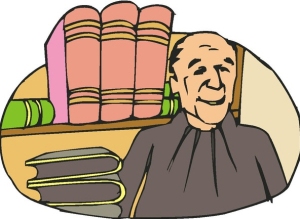My father who was a college dean and author worked into his 70s. Now, I’m doing the same thing even though I haven’t taught a college course for years, opting to rely on money saved during my successful years in the gigolo business to help make ends meet. There are, of course, writers older than I am who don’t have the resources from a shady past to supplement their literary output.
 When I was in his school, I looked at the careers of Salinger, Elison, Bradbury, Ginsberg, Rand, and others and told people that’s what I wanted to do after I graduated from college. Most of them laughed. Now, years later, I see why they did even though then and now I don’t see that laugh as very supportive.
When I was in his school, I looked at the careers of Salinger, Elison, Bradbury, Ginsberg, Rand, and others and told people that’s what I wanted to do after I graduated from college. Most of them laughed. Now, years later, I see why they did even though then and now I don’t see that laugh as very supportive.
I view the notion of retirement as the time in a person’s life when s/he stops doing what s/he was passionate about for most of his/her life. S/he ends up with no salary, few benefits, and ends up moving into a home where everyone eats jello three times a day. There was nothing exciting about that kind of life, so retirement seemed like a silly thing to do unless you had a lot of stolen wealth hidden in offshore accounts to pay for a big-ass RV and a lifetime of driving around from one scenic tourist destination to another.
That doesn’t excite me either, though I think the odds have gotten pretty slim that I’m suddenly going to be the next James Patterson. So, I think about just stopping writing books and spending my days reading. Everyone has to think about this sooner or later unless they’re Tom Clancy who keeps churning out books even though he’s been dead since 2013. Maybe that cap he wears in his author’s picture is magic and allows him to submit manuscripts from “the other side.”
I used to have a cap like that but during the dark days of Vietnam, I traded it for a pack of cigarettes.
Of course, I might still get a call from Oprah’s book club.
My bookshelves have an infinite number of books, so if I want to retire, I’ve got enough stuff to read to last me, well, forever.



